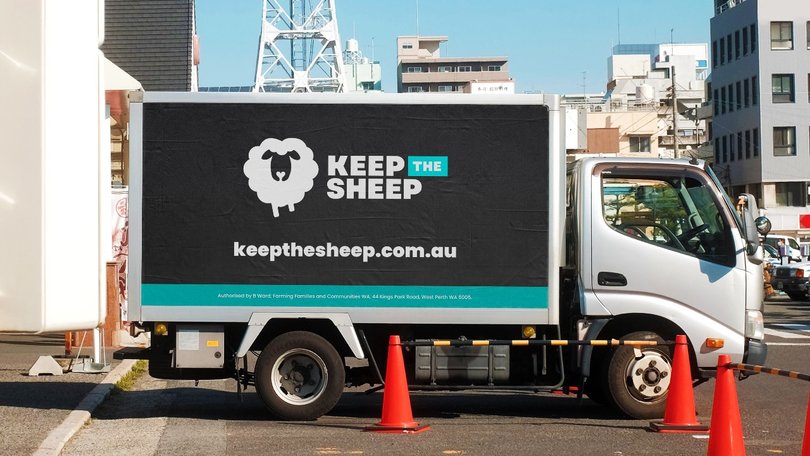Live sheep export ban to cause devastating ripple effects across supply chain and communities, inquiry told

The devastating ripple effect of shutting down the live sheep export trade has been laid bare ahead of a parliamentary inquiry into the Federal Government’s contentious plan.
Farmers, local councils, transport operators, agents and a former Liberal Senator have used submissions to the inquiry to warn of the dire consequences across the supply chain and for regional communities if federal Labor pushes ahead with closing the industry by May 2028.
Economic analysis prepared for one group of shires in WA’s northeast Wheatbelt estimated the industry shutdown would cost their small region at least $128 million, with a further $35 million hit to household spending.
Sign up to The Nightly's newsletters.
Get the first look at the digital newspaper, curated daily stories and breaking headlines delivered to your inbox.
By continuing you agree to our Terms and Privacy Policy.A hastily convened Federal parliamentary inquiry into laws to ban the trade will hold its only two public hearings this week, starting in Canberra on Wednesday before shifting to the Wheatbelt town of Muresk on Friday.
The committee has received almost 50 submissions despite farmers and other stakeholders being given just one week to prepare their arguments.
An analysis of the submissions highlights how the planned shutdown is expected to ripple far beyond live sheep exporters, hurting industries across the supply chain as well as the regional communities supporting them.
The Government has promised $107 million to help the industry manage the shutdown and transition to more on-shore processing.
WAFarmers livestock council president Geoff Pearson described the package as “measly”, arguing the ban would cause “irreparable damage” to producers.
In her submission, Joanna Slattery, who has run a family farming operation on WA’s south coast for 33 years, described Agriculture Minister Murray Watt’s announcement of the 2028 end date as “one of the darkest days in the history of the Australian agriculture industry”.
“Who could ever have imagined it would be politically motivated, uneducated and poorly researched Government policy that would potentially sound the death knell to our life’s work?” she wrote.
David Bertola, of Esperance Bulk and Livestock, said shutting the trade would cost his business about 25 per cent of its annual income.
“The damage this decision will do to the Western Australian sheep flock has already dented confidence,” he said.
The North Eastern Wheatbelt Regional Council of Organisations (NEWROC) – a coalition of seven shires – commissioned consultants Econisis in October last year to assess the economic impact of shutting the trade on their region.
The region – which has a population of just over 3200 people – is home to more than 400,000 sheep.
The report found the shutdown would wipe at least $128 million from the region’s economy over 20 years, damaging the “sustainability and economic future” of the communities.
“This is not just a sheep producers issue, it will affect all businesses regardless of their industry. It will affect government service delivery, not-for-profits, social activities, school numbers, career diversity in the region etc,” the report found.
The Econisis report was not completed in time to be considered by the independent panel that recommended the May 2028 end date.
Former WA Liberal senator and registered vet Chris Back has also weighed in, describing the laws as “morally and ethically repugnant” and “economically dangerous” given Australia’s reliance on exports.
“Once again, the economic and social wellbeing of Western Australian rural communities is sacrificed for the electoral interests of votes in the inner-city suburbs of Eastern States capital cities,” Dr Back wrote in his submission.
While most submissions to the inquiry opposed the ban, some were in support.
In her submission, Susan Metcalfe said the end date “cannot come soon enough”.
“We should never as a society prioritise profit over the well-being of any animal, human or non-human,” she said.
